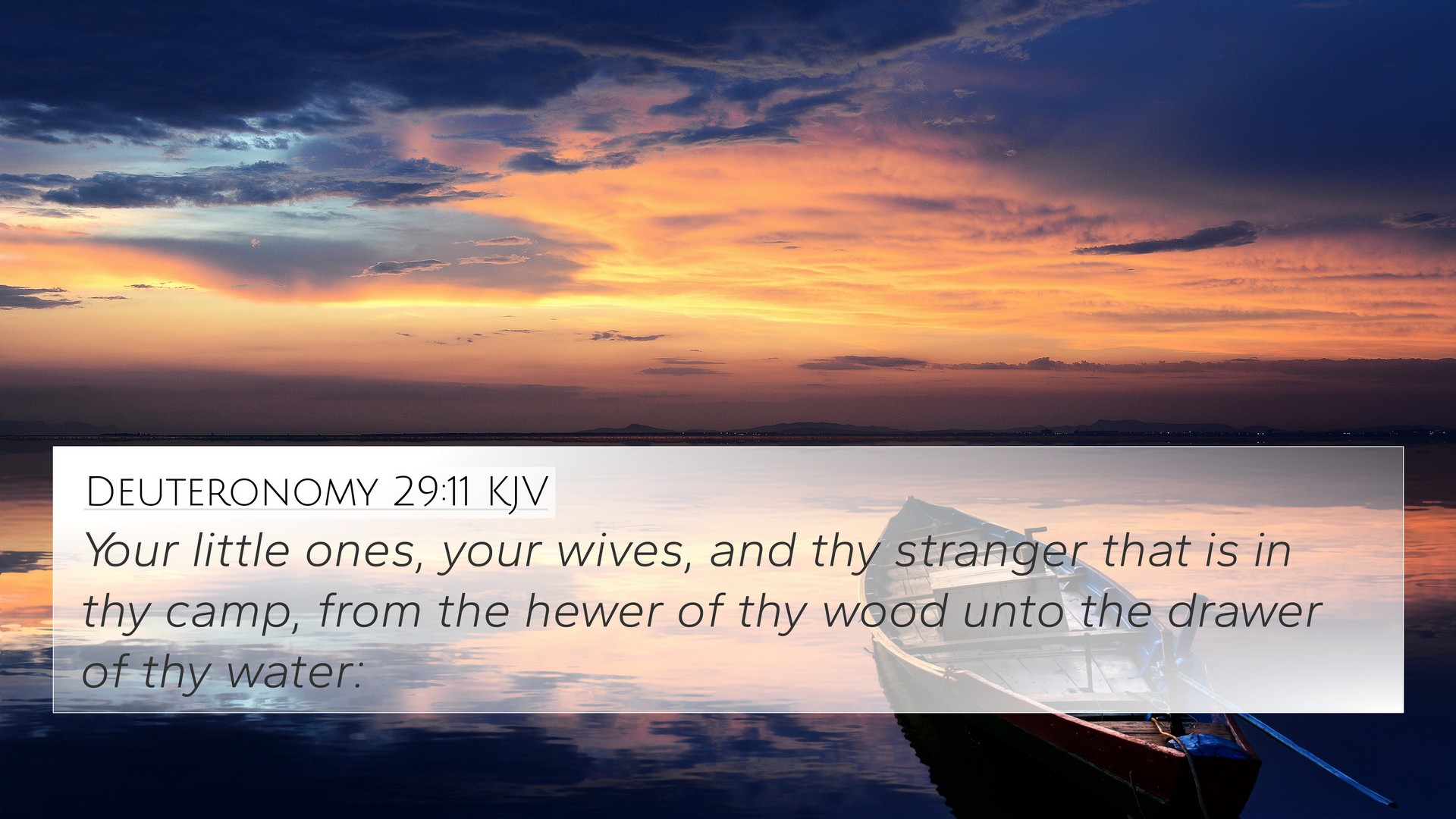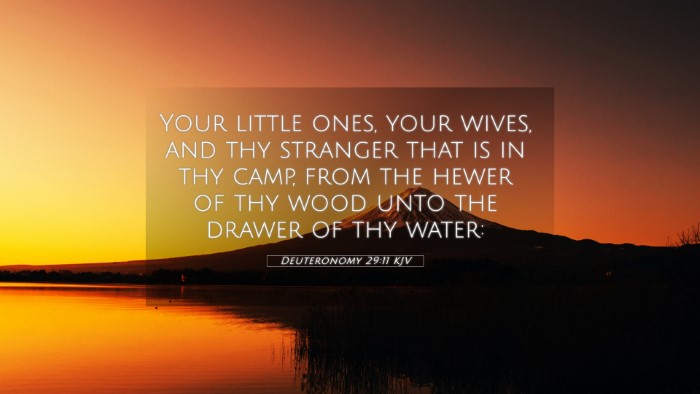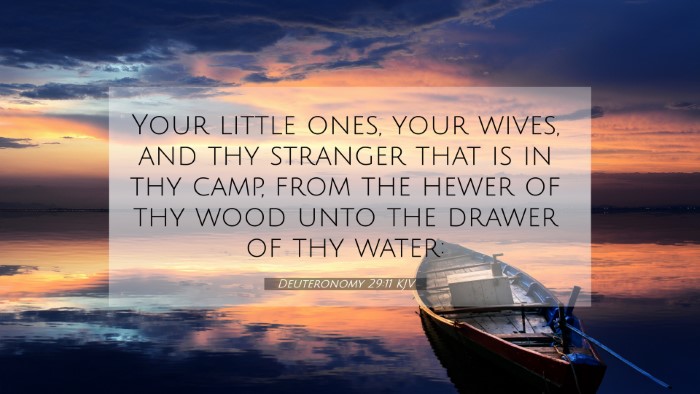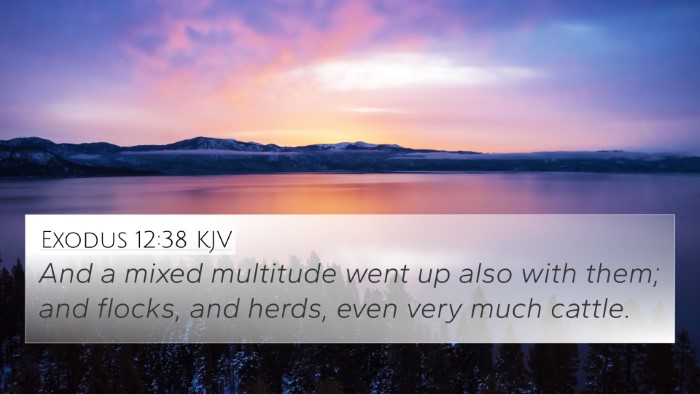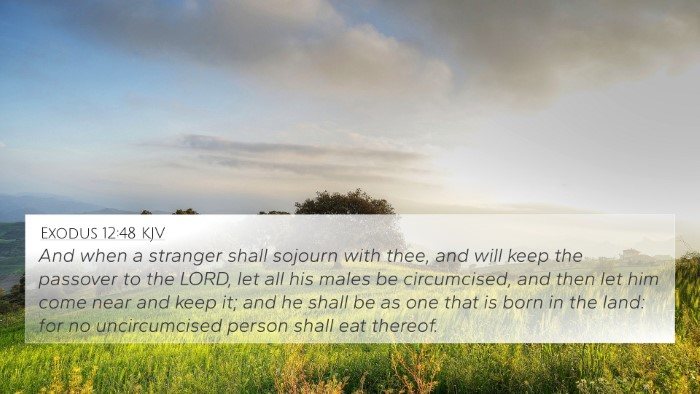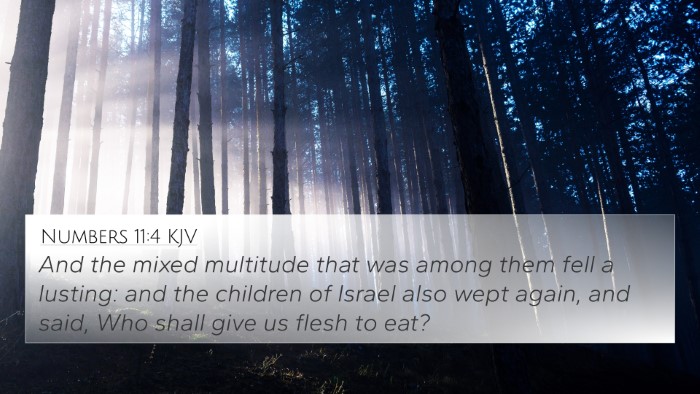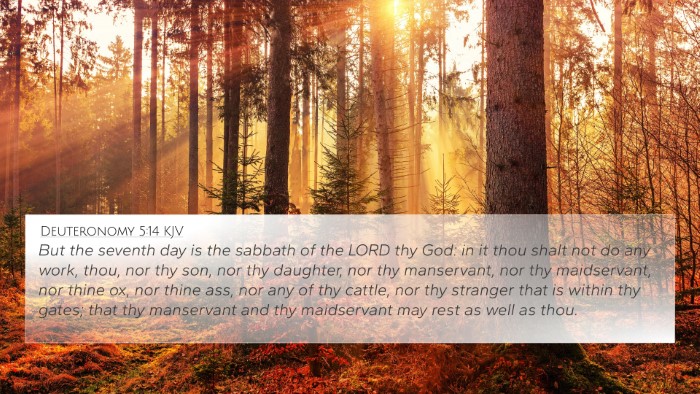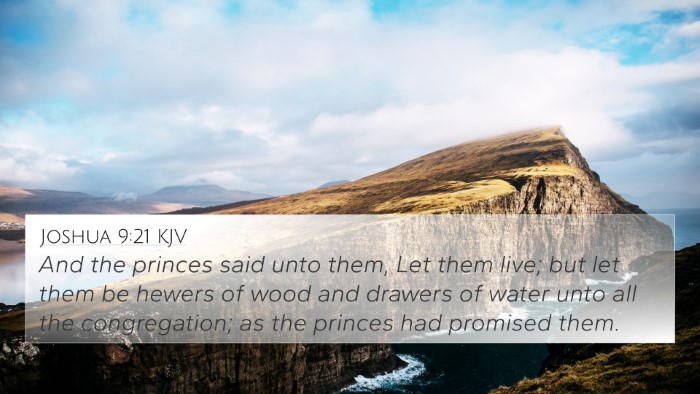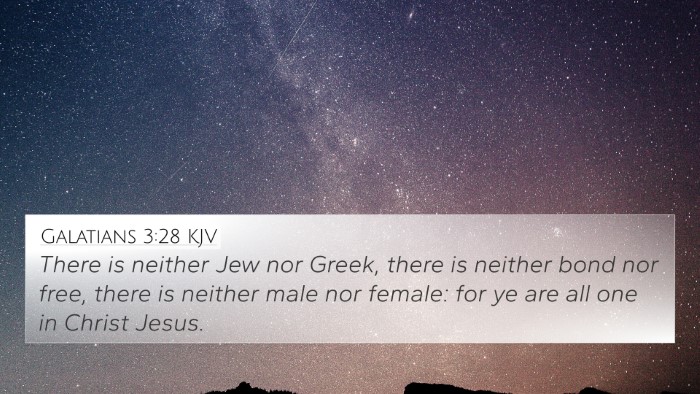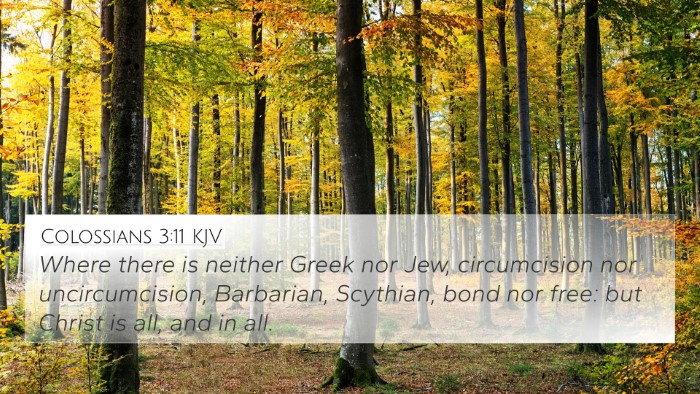Understanding Deuteronomy 29:11
Deuteronomy 29:11 states: "And the stranger that is within thy camp, from the hewer of thy wood unto the drawer of thy water:" This verse forms part of the covenant renewal in the land of Moab. It emphasizes the inclusivity of God's people, drawing attention to both Israelites and foreigners. This commentary aims to elucidate the meaning of Deuteronomy 29:11 through insights drawn from respected public domain commentaries.
Key Themes and Concepts
- Covenant Community: The verse highlights God's covenant with not just the Israelites but also with the strangers among them.
- Inclusivity: It signifies the importance of all members, regardless of their origin, in the worship and service to God.
- Divine Governance: This verse reflects God's desire for order and reverence within the community.
Commentary Insights
Matthew Henry explains that this passage points to the necessity of unity and inclusivity within the community of faith. He suggests that God's laws are for all, implying that those who join with God's people share in His promises and responsibilities.
Albert Barnes emphasizes the cultural context, noting that the inclusion of "the stranger" signifies that God's mercy extends beyond ethnic boundaries. He argues that the people are to treat foreigners with dignity, reflecting God's character.
Adam Clarke further elaborates on the idea of servitude, indicating that both the native and the stranger are called to serve and worship. He posits that the act of service is a means of showing reverence to God, reinforcing the community's role as a chosen people.
Bible Cross-References
To deepen the understanding of this verse, the following Bible verses are related:
- Exodus 12:49: "One law shall be to him that is homeborn, and unto the stranger that sojourneth among you."
- Leviticus 19:34: "But the stranger that dwelleth with you shall be unto you as one born among you, and thou shalt love him as thyself."
- Isaiah 56:6-7: "Also the sons of the stranger, that join themselves to the Lord, to serve him..."
- Galatians 3:28: "There is neither Jew nor Greek, neither bond nor free, neither male nor female: for ye are all one in Christ Jesus."
- Romans 15:7: "Wherefore receive ye one another, as Christ also received us to the glory of God."
- Ephesians 2:19: "Now therefore ye are no more strangers and foreigners, but fellowcitizens with the saints..."
- Acts 10:34-35: "Of a truth, I perceive that God is no respecter of persons: but in every nation he that feareth him, and worketh righteousness, is accepted with him."
Connections between Bible Verses
The references highlight a thematic connection across both the Old and New Testaments, underlining God's consistent message regarding the treatment of others, especially those who are different or outside of one’s community. The linkage shows that God's heart has always been towards inclusivity.
Cross-Referencing Biblical Texts
This analysis utilizes cross-references as a vital tool for understanding scripture. Such references provide clarity about the broader message found within the context of the Bible. Engaging with these connections permits deeper theological reflection and application. Here we consider aspects of Bible concordance and Bible cross-reference systems as instrumental resources.
Tools for Bible Cross-Referencing
Utilizing cross-references in Bible study can enhance understanding and personal application. Consider Bible cross-reference guides and Bible reference resources to explore how these themes of inclusivity and community resonate throughout the scriptures. Additionally, the Cross-reference Bible study methods are invaluable for in-depth analysis.
Conclusion
Deuteronomy 29:11 serves as a profound reminder that the covenant of God includes all who choose to follow Him. The insights derived from various commentaries and the related biblical texts enrich our understanding of God's universal love and call to community. In exploring the similarities between this verse and others, a broader picture emerges, highlighting a consistent theme of divine inclusion and acceptance.
